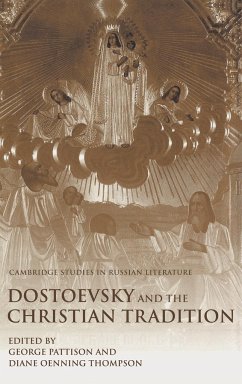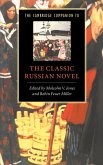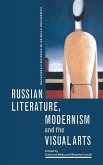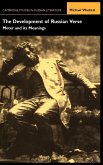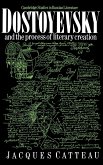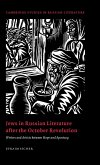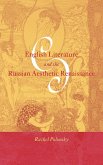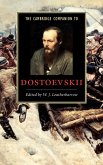Dostoevsky is one of Russia's greatest novelists and a major influence in modern debates about religion, both in Russia and the West. This collection brings together Western and Russian perspectives on the issues raised by the religious element in his work. The aim of this collection is not to abstract Dostoevsky's religious 'teaching' from his literary works, but to explore the interaction between his Christian faith and his writing. The essays cover such topics as temptation, grace and law, Dostoevsky's use of the gospels and hagiography, Trinitarianism, and the Russian tradition of the veneration of icons, as well as reading aloud, and dialogism. In addition to an exploration of the impact of the Christian tradition on Dostoevsky's major novels, Crime and Punishment, The Idiot and The Brothers Karamazov, there are also discussions of lesser known works such as The Landlady and A Little Boy at Christ's Christmas Tree.
Table of contents:
Introduction George Pattison and Diane Oenning Thompson; Part I. Dostoevsky and the Practice of Orthodoxy: 1. Dostoevsky and the Kenotic tradition Margaret Ziolkowski; 2. Dostoevsky's markings in the gospel according to St. John Irina Kirillova; 3. Icons in Dostoevsky's works Sophie Ollivier; 4. Problems of the biblical word in Dostoevsky's poetics Dianne Oenning Thompson; Part II. Dostoevsky and Christian Theology: 5. Dostoevsky in the prism of the orthodox semiosphere Avril Pyman; 6. The categories of law and grace in Dostoevsky's poetics Ivan Escaulov; 7. The Brothers Karamazov as Trinitarian theology David S. Cunningham; 8. Reading and incarnation in Dostoevsky Eric J. Ziolkowski; Part III. Reading Dostoevsky religiously: case studies: 9. Towards an iconography of Crime and Punishment Anthony Johae; 10. Pavel Smerdyakov and Ivan Karamazov: the problem of temptation Vladimir Kantor; 11. Translator's afterword Caryl Emerson; 12. Beyond the will: humiliation as Christian necessity in Crime and Punishment Henry M. W. Russell; 13. Freedom's dangerous dialogue: reading Dostoevsky and Kierkegaard together George Pattison; Bibliography.
This collection brings together Western and Russian perspectives on the issues raised by the religious element in Dostoevsky's work. In addition to an exploration of the impact of the Christian tradition on Dostoevsky's major novels, there are also discussions of lesser known works.
This collection brings together Western and Russian perspectives on the issues raised by the religious element in Dostoevsky's work.
Hinweis: Dieser Artikel kann nur an eine deutsche Lieferadresse ausgeliefert werden.
Table of contents:
Introduction George Pattison and Diane Oenning Thompson; Part I. Dostoevsky and the Practice of Orthodoxy: 1. Dostoevsky and the Kenotic tradition Margaret Ziolkowski; 2. Dostoevsky's markings in the gospel according to St. John Irina Kirillova; 3. Icons in Dostoevsky's works Sophie Ollivier; 4. Problems of the biblical word in Dostoevsky's poetics Dianne Oenning Thompson; Part II. Dostoevsky and Christian Theology: 5. Dostoevsky in the prism of the orthodox semiosphere Avril Pyman; 6. The categories of law and grace in Dostoevsky's poetics Ivan Escaulov; 7. The Brothers Karamazov as Trinitarian theology David S. Cunningham; 8. Reading and incarnation in Dostoevsky Eric J. Ziolkowski; Part III. Reading Dostoevsky religiously: case studies: 9. Towards an iconography of Crime and Punishment Anthony Johae; 10. Pavel Smerdyakov and Ivan Karamazov: the problem of temptation Vladimir Kantor; 11. Translator's afterword Caryl Emerson; 12. Beyond the will: humiliation as Christian necessity in Crime and Punishment Henry M. W. Russell; 13. Freedom's dangerous dialogue: reading Dostoevsky and Kierkegaard together George Pattison; Bibliography.
This collection brings together Western and Russian perspectives on the issues raised by the religious element in Dostoevsky's work. In addition to an exploration of the impact of the Christian tradition on Dostoevsky's major novels, there are also discussions of lesser known works.
This collection brings together Western and Russian perspectives on the issues raised by the religious element in Dostoevsky's work.
Hinweis: Dieser Artikel kann nur an eine deutsche Lieferadresse ausgeliefert werden.
